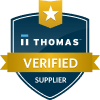Procurement is the backbone of organizational operations, providing the resources required for business processes. A well-organized procurement process makes it easier to promptly acquire goods and services, allowing businesses to meet customer requests more efficiently. They can mitigate risks and achieve operational excellence through strategic vendor partnerships and diligent contract management.
The following are several procurement services and strategies that businesses commonly employ:
1. Strategic Sourcing
Strategic sourcing involves selecting suppliers based on quality, reliability and cost-effectiveness. This helps businesses secure the best possible terms and conditions while considering key factors such as sustainability and ethical sourcing practices.
Some of the most crucial conditions in strategic sourcing include the following:
- Price and payment terms: This specifies the agreed-upon pricing structure for goods or services and the payment system. It often includes payment milestones, discounts for early settlement, and penalties for tardiness.
- Delivery terms and lead times: These outline how and when the products will be delivered, including shipping methods, delivery schedules, and lead times. Understanding these factors is crucial for planning inventory levels, production schedules, and customer commitments.
- Warranty and returns policies: These specify the duration and conditions under which the supplier will be obligated to repair or replace defective items at no additional cost. Clear terms assure quality and protect the buyer against unexpected expenses or losses due to product failures.
- Termination and dispute resolution: Termination clauses outline the conditions under which either party can terminate the contract, including breach of contract or insolvency. Meanwhile, dispute resolution mechanisms provide a structured process for resolving conflicts.
2. Supplier Relationship Management (SRM)
SRM goes beyond transactional interactions with suppliers to foster long-term, collaborative partnerships built on trust and mutual respect. Effective SRM entails regular communication, performance evaluation, and problem-solving efforts to drive continuous improvement. It also involves sharing market intelligence and strategic insights with key suppliers to facilitate informed decision-making.
3. Category Management
Category management encompasses grouping similar expenditures to facilitate better oversight, strategic planning, and resource allocation. By analyzing spending patterns and market dynamics within each category, businesses can identify opportunities for consolidation and standardization. It also fosters collaboration across departments, aligning procurement strategies with overall business objectives.
4. Contract Management
Contract management covers the entire lifecycle of supplier agreements, from negotiation and execution to performance monitoring and renewal. Effective contract management involves clearly defining terms and conditions, specifying deliverables and performance metrics, and establishing mechanisms for dispute resolution. This allows businesses to minimize legal and financial risks and optimize vendor relationships.
5. E-Procurement Services
E-procurement services leverage digital technologies to streamline and automate procurement processes, including sourcing, purchasing, invoicing, and payments. These integrated systems provide real-time visibility into different activities, enable electronic collaboration with suppliers, and facilitate data-driven decision-making.
6. Supplier Diversity Programs
Supplier diversity initiatives promote inclusivity and equal opportunities by seeking out businesses owned by women, minorities, veterans, and other underrepresented groups. Companies can tap into a wider talent pool by embracing diversity in the supply chains. This significantly fosters innovation and enhances their reputation as socially responsible corporate citizens.
7. Risk Management Services
Procurement risk management involves identifying, assessing, and mitigating potential threats that could disrupt the supply chain or compromise objectives. Common risks include economic fluctuations, supplier failures, geopolitical instability, and regulatory changes. Effective risk management strategies enable companies to anticipate challenges, respond swiftly to unforeseen events, and safeguard their reputation.
NetSource Technology: Your Trusted Partner for Reliable Procurement Services
At NetSource Technology, we deliver comprehensive procurement solutions tailored to your business needs. Our team is dedicated to optimizing your processes — from strategic sourcing to contract management — to ensure maximum efficiency and cost savings. We also provide technology solutions to streamline procurement workflows and enhance visibility into your supply chain.
Contact us or request a quote today to get started!




